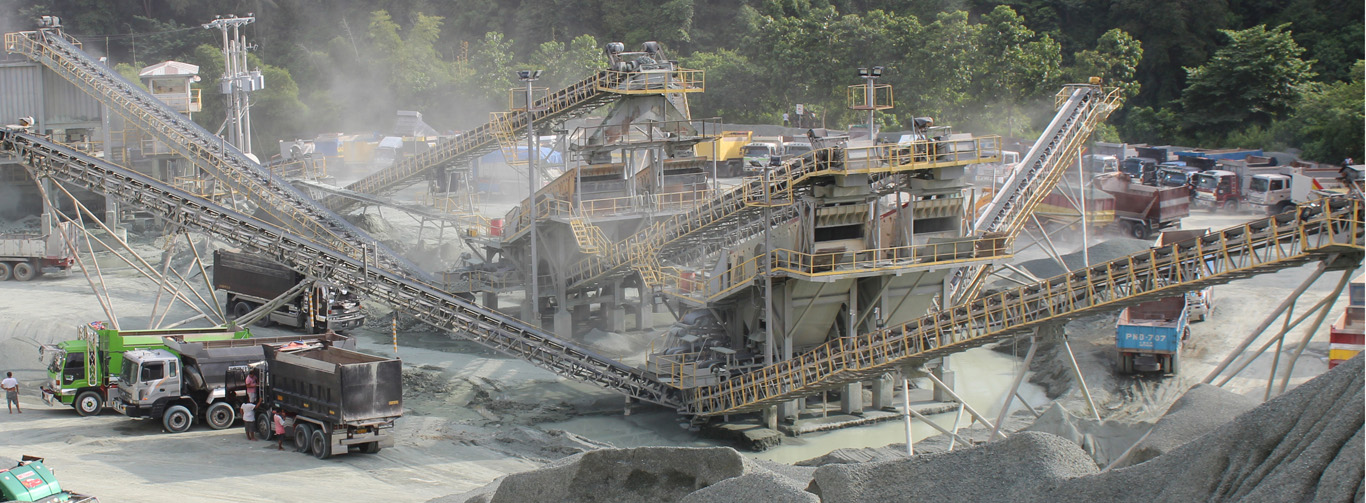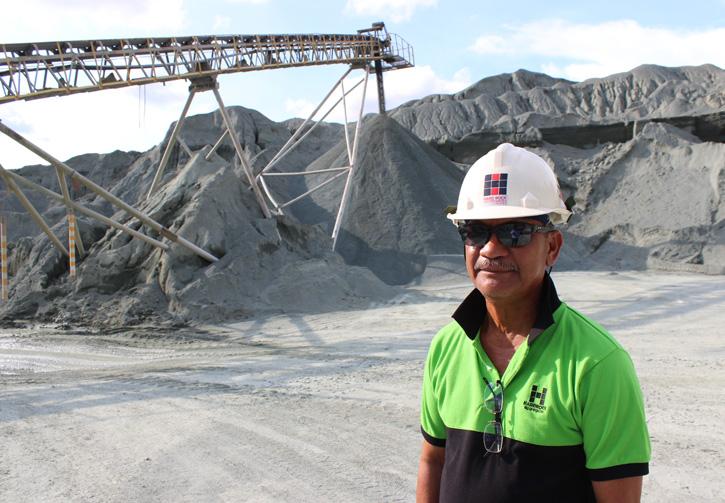“I joined Hardrock in 2007 and noticed a lot of discrepancies in the design of the plant. Having a 42x56 jaw crusher in the primary stage with a Symons crusher in the secondary stage was a clear mismatch, demanding a complete re-engineering of the plant,” says Pulvinar.
“I simultaneously started creating the new layout with Metso equipment, without letting production come to a stop in the old design,” he adds.
The old, ill-structured process prompted Hardrock to go all in for the new design and equipment. One by one, all machines were replaced to achieve the targeted production. Presently, Hardrock has two Metso Nordberg® C140™ jaw crushers in the primary stage, two Metso Nordberg® HP400™ and four HP300™ cone crushers in the secondary stage along with four vibrating screens to produce 500 tons of aggregates per hour.
Increased production with the use of Metso equipment
The installation of the new design made a huge difference in the quantity and quality of production as well as in the operating and maintenance costs of the plant. The annual production jumped from 1 million tons to 3 million tons.
“Since we have upgraded our machines to Metso equipment, our production has increased and costs have gone down. There has been a substantial decrease in operating costs. In the long run, we can compete with the very big names in the industry. This is the kind of trust we enjoy with Metso’s solutions,” says Pulvinar.
“Ever since we installed the C140 in the primary stage and the HPs in the secondary stage, we were facing new challenges within our quarry: the pressure to produce enough for us to feed the crushers. The technology is pushing us for the better, and I completely believe this will enable us to attain utmost efficiency in the future,” he added.
The HP’s design and robust quality resulted in lower maintenance costs and less down-time. All in all, it facilitated high production. “The HPs have good speed and shape, which reduces downtime tremendously and leads to easy machine maintenance,” notes Pulvinar.
Future plans using Metso’s sustainable solutions
Hardrock plans to use Metso equipment to enhance the production quality of its current products. The demand for the S1 sand (0 mm-6 mm) currently being produced is soft because of the presence of fines and dust in the output, which the customer rejects. Thus, Hardrock is targeting to produce S3 sand (1 mm-5 mm), which is in great demand by the customers as it is free of fines and dust. To get this enhanced quality, Hardrock is considering Metso’s Air Classification technology to separate dust from the sand; it is also considering the Hummer Screen, which is uniquely designed for removing finer particles from the manufactured sand.
It is well understood by Hardrock that using Air Classification and a Hummer Screen will enable them to convert the S1 sand into S3 manufactured sand, which is widely in demand in the Asian markets now. “Hardrock’s huge pile of S1 sand stock is giving them a tough time; on one hand, S1 sand is no longer in demand and there are no takers for it, and, on the other hand, keeping this stock is costing the company a great deal,” says Pulvinar. “The classification of S1 sand using Metso’s specialized technology, such as Air Classification, can help convert the unsold and undesirable stock into a hot-selling product for Hardrock, allowing them to save on costs and to generate profit from it,” he added.
“The quality and technology Metso provides to its customers is unparalleled in the industry. asserts Pulvinar.
The three-stage production process with Metso products at each stage clearly signifies that Metso makes a huge difference to its customers by delivering knowledgeable solutions that enhance long-term, sustainable growth.

